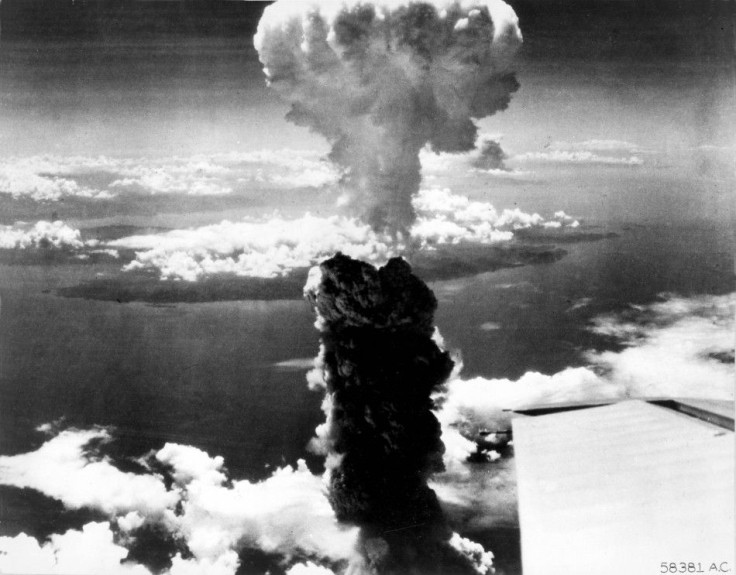Nagasaki Memorial: First Ever U.S. Representative Receives Mixed Reactions

For the first time ever, the United States sent an official representative to the annual memorial service for the victims of the atomic bombing of Nagasaki.
The bomb at Nagasaki, one of two U.S. nuclear attacks in the closing days of World War II, killed some 80,000 people. Three days before, the U.S. dropped an atomic bomb on Hiroshima that killed nearly 140,000. Thousands more died of radiation-related illness in the following years.
Six days after Nagasaki, Japan surrendered.
Last year, U.S. President Barack Obama sent Ambassador John Roos to the 65th anniversary of the bombing in Hiroshima. This year, the deputy chief of mission at the U.S. Embassy in Tokyo, James P. Zumwalt, became the first American representative to attend the Nagasaki memorial service. He read a statement from Obama expressing hope to work with Japan for a world without nuclear weapons.
"I was deeply moved," Zumwalt told reporters after attending the ceremony.
"Japan and the United States have the common vision for a world free of nuclear weapons, so it is important that the two countries make efforts to realize it," he said, speaking in Japanese.
Not everyone was happy about Zumwalt's presence at the ceremony. Katsumi Matsuo, who lost her mother in the attack, told The Mainichi Daily News: "What is the point in him coming now, after 66 years? His visit will only be meaningful if it promotes a world free of nuclear weapons."
An elderly woman added: "I don't ask him to apologize, but I hope for a world in which a nuclear weapon is never used."
A moment of silence was observed at 11:02 a.m., the time the bomb fell on Nagasaki on Aug. 9, 1945. Following tradition, a bell then rang out in a prayer for peace. Victims, who were children during the attack, joined together to sing a song, "Never Again."
The names of the bomb survivors who have died in the past year were also read.
About 6,000 people, including diplomats from 44 countries, gathered in the city's Peace Park for the solemn ceremony.
Nagasaki Mayor Tomihisa Taue appealed for Japan to find sources of renewable energy to replace nuclear power in his formal remarks. He said that it is time for the Japanese people to debate what kind of society they want to live in.
Prime Minister Naoto Kan expressed remorse for the failure of existing nuclear policies and agreed that Japan must move away from its reliance on nuclear power.
Japan has 54 nuclear reactors along its coast.
The lingering fears of radiation sickness were renewed in March in the wake of the Fukushima nuclear power plant disaster after Japan's massive earthquake and subsequent tsunami.
© Copyright IBTimes 2025. All rights reserved.






















